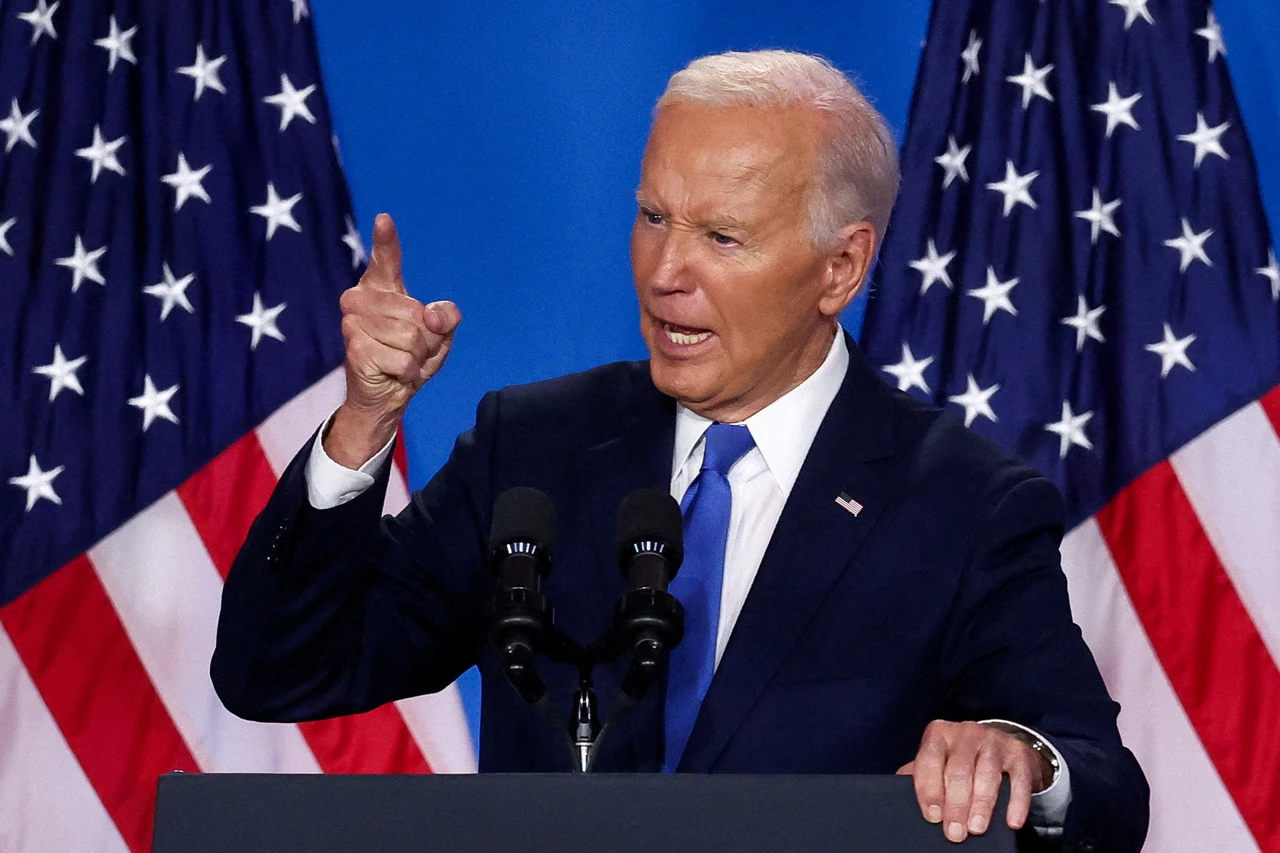US vows to response with Israel after Iranian missile barrage
 U.S. President Joe Biden gestures as he speaks at a press conference during NATO's 75th anniversary summit, in Washington, U.S., July 11, 2024. (Reuters Photo)
U.S. President Joe Biden gestures as he speaks at a press conference during NATO's 75th anniversary summit, in Washington, U.S., July 11, 2024. (Reuters Photo)
The United States has pledged full support for Israel following an Iranian missile strike on Tuesday, in which Tehran launched around 180 missiles in retaliation for the killing of two prominent militant leaders backed by Iran.
Although most of the missiles were intercepted by Israel’s defense systems, U.S. President Joe Biden reaffirmed America’s commitment to defending its key ally. “Make no mistake, the United States is fully, fully, fully supportive of Israel,” Biden said during a press briefing. He confirmed that U.S. military forces had been ordered to assist in Israel’s defense, including intercepting Iranian missiles.
U.S. Vice President and Democratic presidential candidate Kamala Harris also pledged an ‘unwavering’ commitment to Israel’s security. “I will always ensure Israel has the ability to defend itself against Iran,” Harris said.
National Security Advisor Jake Sullivan described the attack as “defeated and ineffective,” but warned Iran that it could face “severe consequences” if such hostilities continue. State Department spokesperson Matthew Miller further emphasized that the U.S. is in close coordination with Israeli officials to determine an appropriate response. “I’m not going to get into what those consequences are… but there are things on which we will be coordinating with our Israeli counterparts,” Miller stated.
In discussing the situation, U.S. President Biden indicated that the U.S. would work closely with Israel to develop a strategic response. “That’s in active discussion right now,” he said, underscoring the ongoing dialogue between Washington and Tel Aviv. He confirmed that he would be speaking directly with Israeli Prime Minister Benjamin Netanyahu to decide on the next steps.
Meanwhile, U.S. military forces in the Middle East are being bolstered by additional troop deployments to safeguard American and Israeli interests as tensions with Iran escalate. The Pentagon has indicated that thousands of U.S. personnel will be deployed to reinforce the region, should further threats emerge.
The U.S. response follows Iran’s largest direct attack on Israel to date, marking a sharp escalation in the already volatile Middle East situation. Iran’s Revolutionary Guards claimed responsibility for the missile strike, stating it targeted military bases around Tel Aviv. They characterized the attack as retaliation for the deaths of Hezbollah leader Hassan Nasrallah and Hamas leader Ismail Haniyeh, both of whom were killed in recent Israeli strikes.
While calls for de-escalation have grown, particularly from the United Nations and European leaders, Washington’s strong rhetoric has emphasized its readiness to act in defense of Israel. As U.S. President Biden continues consultations with Israeli officials, the global community watches closely for what could be a critical turning point in the region’s geopolitical landscape.



